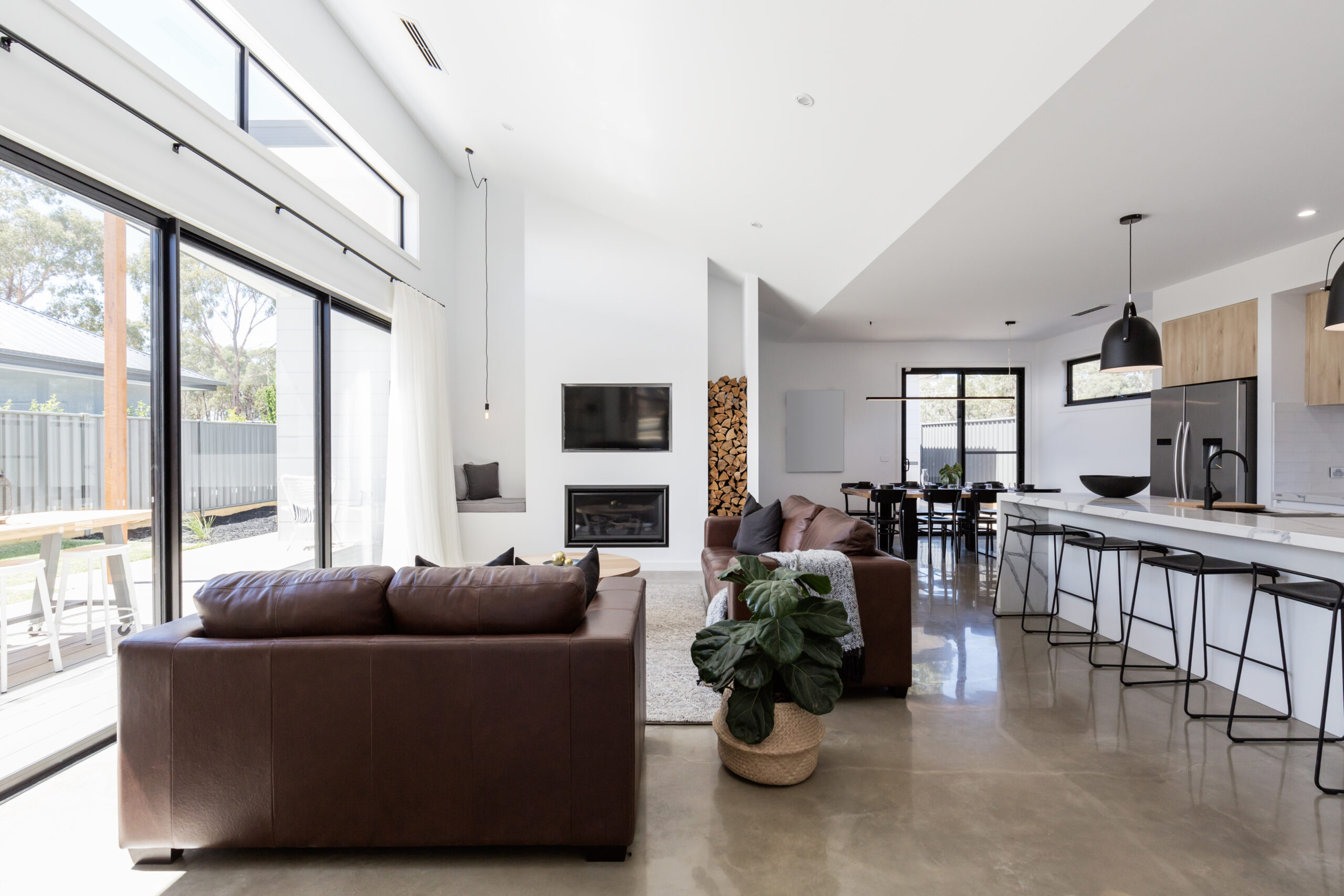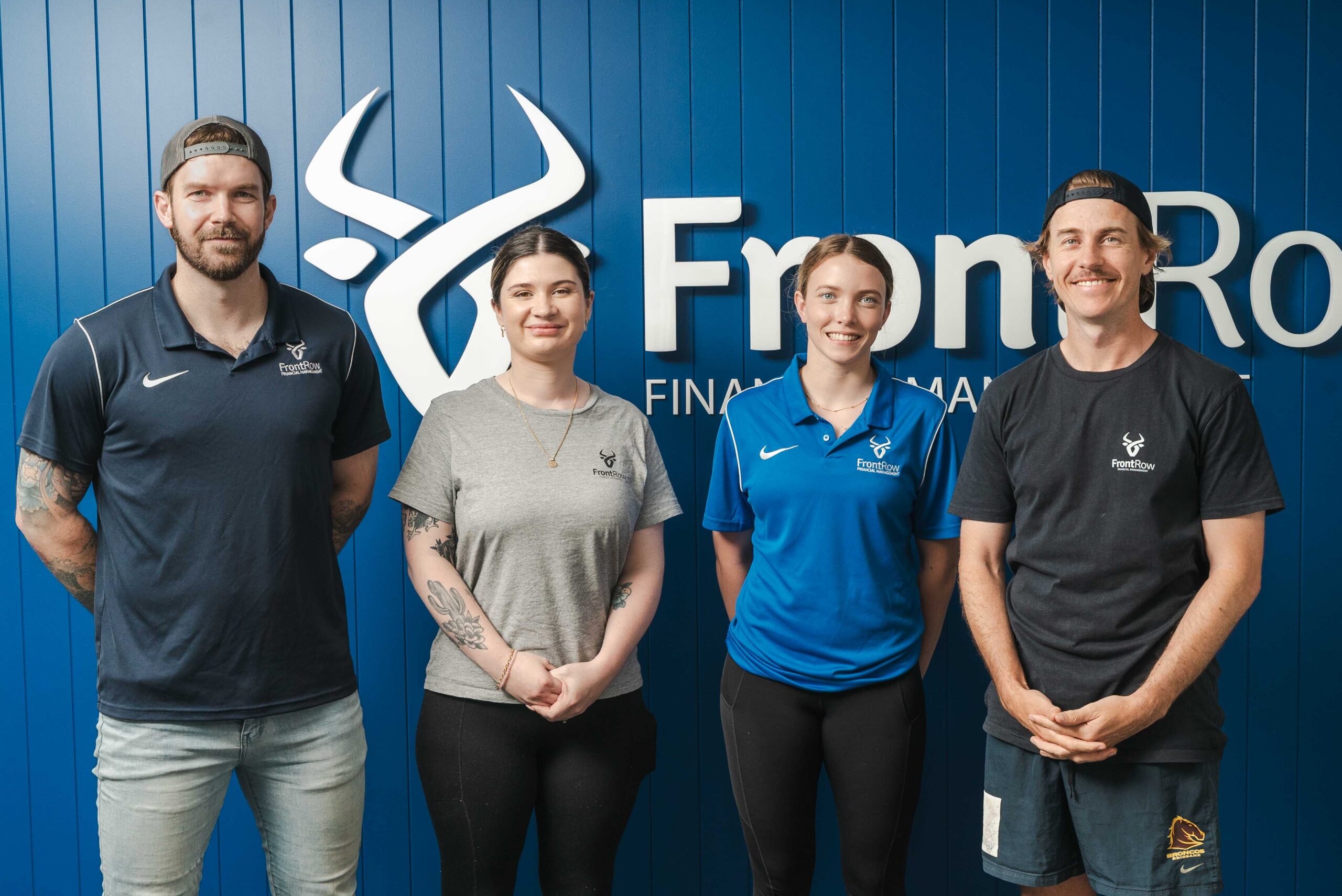Here are the most important things to know before you borrow.
If you’re looking to buy your first home, chances are you’re also looking for your first home loan. It may seem daunting, but it doesn’t need to be. With some expert advice and help along the way, you’ll be able to find the right loan and, more importantly, get closer to owning your own home. More than half of all Australians taking out a mortgage are doing so with the help of a mortgage broker. It’s the smart way to go. In this blog, we’ll cover everything you need to know about getting your first home loan and how having a broker by your side could benefit you.
Working with a Front Row Financial mortgage broker is the smart way to go
- We provide real choice, looking to find you the right deal.
- We work with multiple lenders, not just one – keeping competition alive.
- We may negotiate a better outcome.
- We help at a time and place that suits you, doing the legwork for you.
- Our aim is to save you time and stress, and get things moving as quickly as possible.
Start saving for a deposit
Most lenders require a deposit of at least 10-20% of the total loan amount.
Lenders Mortgage Insurance
If your loan amount is more than 80% of the value of your dream property, you will also need to pay Lenders’ Mortgage Insurance (LMI). This is a one-off insurance payment charged by lenders, to borrowers who are considered a higher financial risk. Your risk to lenders is determined by your loan to value ratio (LVR), which is the amount you wish to borrow divided by the lender’s valuation of the property you wish to buy. Lenders generally like to have at least a 20% buffer, so if you have to default on the loan, they stand a good chance of recouping the loan amount through the sale of your property. Ideally, you should start with a 20% deposit to avoid paying LMI. For some borrowers, however, LMI is considered a worthy investment to help secure a loan with a lower deposit.
The critical factor is whether your income can support the higher loan repayments. We can give you an LMI estimate based on your financial situation before deciding how much you need for your deposit.
Saving for a deposit
There is no time like the present to start stashing your cash for a deposit. The longer you put it off, the harder it can be to develop good savings habits. Unless you win the lottery, inherit or receive some other windfall, chances are you will need to make sacrifices to save. This may mean finding cheaper rent or moving back in with parents, while making some tough choices about how you spend your disposable income.
Start with a budget
Make an honest appraisal of all your living expenses and decide where you can cut back. Once you know how much you can actually save, set up a direct deposit from your pay into a separate savings account with no card access. That way you won’t be tempted by ATM withdrawals or EFTPOS purchases. It may not be easy, but it will be satisfying to watch your nest egg grow, knowing your homemade lunches and big nights in will eventually reap financial rewards.
Remember the extra costs
In addition to a deposit, you’ll also need to have enough saved to pay for stamp duty and conveyancing or legal fees associated with the purchase of the property.
Talk through your options with us
When it comes to buying your first home, it’s a good idea to speak to a mortgage broker first – even before you speak with a real estate agent, or get too far down the track.
Not only is a broker a wealth of information and advice, we’ll also help you find the right loan, and aim to make the whole application and approval process much easier. There are literally hundreds and hundreds of different loan products for you to choose from. It’s just a matter of helping you finding the right one. As your broker, we will look for a loan that suits you and your circumstances. With access to multiple lenders and an array of different loan products, we stay up-to-date with changes within the market and new products from the lenders as they come online. The best thing is, while you’re saving for your deposit, we are working for you to give you the peace of mind that you’re in the right deal.
The first thing we will do is catch up and chat about your needs and goals. We can then give you a realistic idea of your borrowing potential and help you find the loan that suits you. So when you find the right place, we can work on sorting out your finance as quickly as possible. Once you know what you can borrow, have found a house, and have chosen a loan, we take care of the application process, taking all the headaches and stress away.
Why not go straight to a bank?
Of course you can go to a bank, but this can be trickier than it sounds. Firstly, which one do you choose? Which of their products is right for you? And what about other lenders, building societies, and credit unions? There are a lot of options out there and, with regularly moving interest rates and new products, it’s an ever-changing market. And let’s not forget that if you’re a first homebuyer, you’re probably very new to this. That’s why a broker makes sense. We do this everyday. We know the lenders, their products and policies and we keep up-to-date with changes. We help choose what’s right for you. Banks enjoy working with brokers, as we do a lot of the work for them and may help speed up the application process. Put simply, having a broker in your corner makes it easier to find the right loan, saves you time and, hopefully, money.
How much can you afford?
The first thing we will do is work out your borrowing potential. While you may have your dream home in mind already, you need to find out if you can afford it first. There are many factors that will influence your decision around what to buy and where – proximity to work and family and your stage of life are just a few – but the single biggest decider is nearly always what you can afford.
It’s really a case of looking at the big picture and working your way back from there. Consider your household income and what you realistically can afford in loan repayments, taking into account all of your expenses (even coffees and lunches).
As a guide, a mortgage calculator can be a great place to start, but it won’t take into account all of your personal circumstances or eligibility for a loan. Talking to us will give you a much more accurate idea of what you can afford. We can look to obtain pre-approval from a lender so you can put an offer on a home when you find the one you like. Of course, even with a pre approval, a subject to finance clause is an important protection.
Finding your home
Once you know what you can afford, you can get a much better idea of what type of home you can buy and where you can live.
When it comes to the type of property and location, many first buyers find they have to compromise in some way. A free-standing home in an established, convenient, leafy neighbourhood near a CBD, great transport, family and friends might well be out of reach the first time around. If convenience is important, you may be looking at apartments instead of houses, remembering that often the closer you get to a CBD, the higher the demand and price. Your budget, for example, might only stretch as far as an older, walk-up unit if you want a property within 20 minutes of a major capital city. If you definitely want a house and garden, depending on where you are, you may be restricted to the outer suburbs or regional areas.
Plan for the future
You should consider what is most important to you now and over the next five years. Are you looking to be part of a community that’s similar in age to you? Is it important to get to and from work as quickly as possible or can you cope with a long commute, providing you have a great lifestyle when you get home? Do you have children or are you starting a family? All of these, in addition to your budget, will influence where and what you buy.
Do your research
When considering an area to buy in, look up suburb demographics and price trends over the past 10 years, plus existing and planned infrastructure, such as public transport, shopping centres and schools. If property values in one suburb have really taken off in the past five years, find out why and consider whether neighbouring areas have similar potential.
Understand the different mortgage types
There’s a lot more to loans than interest rates and fees. A low rate is obviously important, but it’s not everything. There are different sorts of loans and features that will make managing your mortgage easier. We’ll take the time to teach and advise you on the fundamentals you need to know to make an informed decision. To begin with, it’s important to know the main types of loans:
Variable
The interest rates go up and down depending on factors such as the official cash rate, market conditions, and each lender’s decisioning. When the rate goes down, so do your minimum
repayments. But when the rate goes up, your payments will too.
Fixed
The interest rate can be fixed for one to five years. Even if rates change, your repayments stay the same. This helps manage your household budget by knowing exactly what you’ll have to pay. Of course, you won’t benefit if interest rates drop and there may be significant break costs to change the loan before the end of the fixed term.
Split Rate
One part is variable, the other is fixed. This lets you enjoy the benefits of an interest rate drop but also protects you from being affected fully if they rise.
Interest Only
You only pay the interest on your loan but not the principal loan amount. Your repayments are less but you still have the same level of debt at the end of the interest only period. However, an interest only loan will usually cost more over the term of the loan as you won’t start paying off the principal until after the end of the interest only period.
Line of Credit
You can pay into and withdraw from this account as long as you keep up with the required repayments. You can have your income paid into this account to help pay off the mortgage sooner but interest rates are usually slightly higher.
Honeymoon Periods
Designed especially for first homebuyers, you can enjoy a lower interest rate for the first six to 12 months, and then the rate returns to the standard variable rate.
Low Doc
These are popular with self-employed people because they need less documentation or proof of income. However, they usually have a higher rate of interest or need a larger deposit, or both.
Borrowing from the bank of Mum & Dad
With property affordability getting increasingly tricky for some, many first homebuyers are reaching out to their families for financial assistance to help increase their borrowing power.
Partnering up with your family can reduce the financial burden and may mean you can afford a better quality property with greater growth potential than if you bought solo. But it’s not a move you should make lightly. Even if you decide to buy your first property with family, make sure you seek legal advice and ensure each party understands their financial and legal obligations. You don’t want a financial transaction or financial partnership to come between you and your family.
You should talk about what would happen if one of you was unable to cover their share of the mortgage and how you might reduce this risk. It’s also important to contemplate scenarios such as one of you wanting to sell or move out sooner than planned. As with every significant financial decision you make, it’s important to weigh up the pros and cons. If you are considering getting financial assistance from a relative, we recommend speaking to a financial planner and lawyer.
Renting out your first home
There’s no rule that says you have to live in your first property. Many first homebuyers are challenging convention by rent-investing – renting where they want to live and buying an investment property in a more affordable location. The objective for these renters is to buy where they can afford to get a foothold on the property ladder. That could be another suburb in the same city or a town in an entirely different state.
As with any investment, the key is to choose a property on financial merit, not emotion. Are you looking for capital gain over time or high rental yields right away? The investment property can be positively geared, where the rent exceeds the cost of the mortgage and upkeep to give you a profit, or negatively geared, where the rental income is less than the cost of owning and managing the property, which may create a tax deduction.
Again it’s important to seek appropriate legal and financial advice so you are well informed about how renting and taking on an investment property impacts your finances and tax obligations.
The First Home Owner’s Grant & other incentives
The First Home Owner Grant (FHOG) and other various grants and stamp duty concessions may be available to give first homebuyers a leg up. The grants usually apply to apartments and houses up to a certain value. These thresholds can vary depending on the type of dwelling and the state or territory in which the property is located. The savings can be significant, so it’s certainly worth exploring. Talk to us to find out what’s on offer under the FHOG scheme in your market. It is also worth checking if your state or territory offers stamp duty exemptions or concessions for first homebuyers.
Please note we do not provide tax, legal or accounting advice. This guide has been written for general informational purposes only, and is not intended to provide, and should not be relied on for, tax, legal or accounting advice. We encourage you to consult your own tax, legal and accounting advisers before engaging in any transaction. Front Row Financial Australian Credit Licence: 482584





